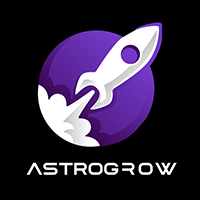
Astrogrow is revolutionizing agriculture with cutting-edge technology and sustainable practices. To discover more about their ingenious solutions, visit astrogrow https://astrogrow.io/.
Exploring Astrogrow: The Future of Sustainable Agriculture
Introduction
As the global population continues to rise, the pressure on agricultural systems intensifies. Climate change, soil degradation, and water scarcity pose significant challenges to food production. In response to these pressing issues, Astrogrow is at the forefront of innovative solutions that aim to transform traditional farming practices into sustainable systems. By integrating technology with agricultural expertise, Astrogrow is making strides toward a greener future.
The Vision Behind Astrogrow
Astrogrow’s mission revolves around leveraging advanced technologies to enhance agricultural productivity while minimizing environmental impact. The founders believe in a future where farming practices can not only feed the growing population but also restore the health of the planet. By focusing on sustainability, Astrogrow aims to create a model that other agricultural enterprises can replicate.
Innovative Technologies
The use of technology in agriculture is not new, but Astrogrow takes it to the next level. Below are some of the key innovations that set Astrogrow apart:

1. Precision Agriculture
Precision agriculture involves using data-driven techniques to optimize field-level management regarding crop farming. Astrogrow employs drones, IoT devices, and environmental sensors to collect real-time data on soil conditions, crop health, and weather patterns. This information helps farmers make informed decisions, ensuring that resources are used efficiently and sustainably.
2. Vertical Farming
With urbanization on the rise, Astrogrow promotes vertical farming as a viable solution for food production. Utilizing controlled environment agriculture, vertical farms can produce significant yields in urban areas, reducing transportation costs and providing fresh produce to local communities. This method also minimizes water usage and eliminates the need for pesticides, further enhancing sustainability.
3. Hydroponics and Aeroponics
Astrogrow explores hydroponic and aeroponic systems, which allow crops to be grown without soil. These methods use nutrient-rich water solutions that promote faster growth and higher yields. Hydroponics and aeroponics are not only efficient but also require less land and water compared to traditional farming, making them attractive options for sustainable agriculture.
Community Engagement and Education
Astrogrow understands that technology alone cannot solve the challenges in agriculture. Community engagement and education are crucial elements of their approach. Through workshops, seminars, and online resources, Astrogrow works to educate farmers about sustainable practices, innovative technologies, and the importance of environmental stewardship. By empowering local communities, Astrogrow fosters a culture of sustainability that can lead to long-term change.

Partnerships and Collaborations
To enhance its impact, Astrogrow actively seeks partnerships with academic institutions, research organizations, and other enterprises. Collaborating with experts in various fields allows Astrogrow to stay on the cutting edge of agricultural research and development. These partnerships also facilitate knowledge sharing and help in the formulation of best practices that can be disseminated across the agricultural sector.
Real-world Impact
Astrogrow’s initiatives have already begun to show tangible results in the communities it serves. Farmers who have adopted their techniques report increased crop yields, reduced costs, and improved sustainability. For instance, a pilot program implemented in a rural region resulted in a 30% increase in crop production while simultaneously reducing water usage by 40%. Such success stories highlight the potential of Astrogrow’s model to make a significant impact on food security.
Challenges Ahead
Despite its successes, Astrogrow faces several challenges. The agricultural sector is often resistant to change, and many farmers may be hesitant to adopt new technologies. Additionally, the initial investment required for advanced systems can be a barrier for small-scale farmers. Astrogrow is aware of these hurdles and works diligently to provide support, financing options, and training to assist farmers in the transition to sustainable practices.
The Road Ahead
Looking forward, Astrogrow is committed to scaling its solutions across various regions. The plan includes expanding its technology reach, enhancing its community engagement efforts, and refining its models based on feedback and data from farmers. As the world continues to grapple with the challenges of food production and environmental sustainability, Astrogrow aims to be a leading force in the drive toward a more resilient agricultural system.
Conclusion
Astrogrow exemplifies the potential of innovative solutions in reshaping the agricultural landscape. By prioritizing sustainability, leveraging technology, and engaging communities, Astrogrow is not only addressing immediate agricultural challenges but is also paving the way for a sustainable future. As we move forward, it will be crucial for individuals, communities, and governments to support initiatives like Astrogrow to ensure food security and environmental health for generations to come.
